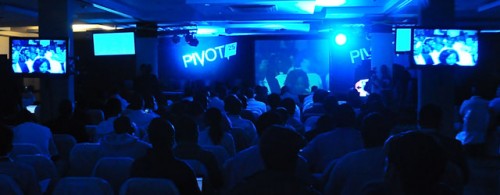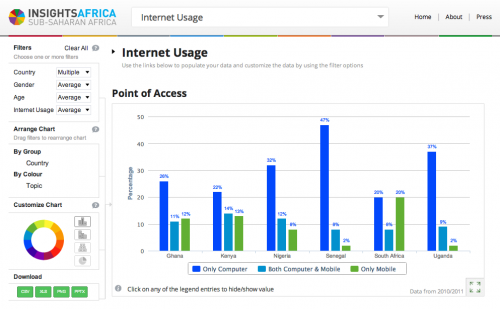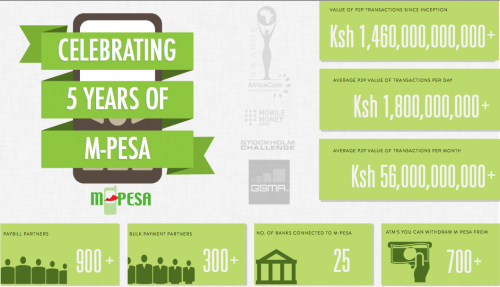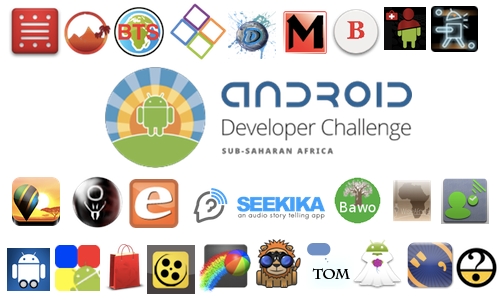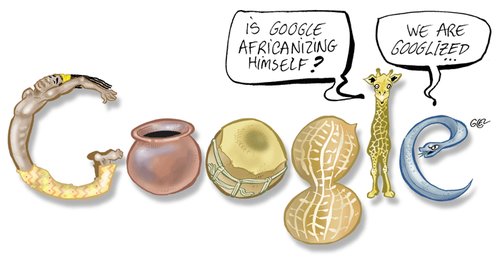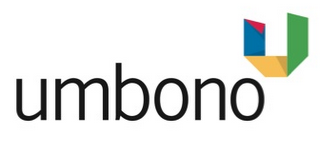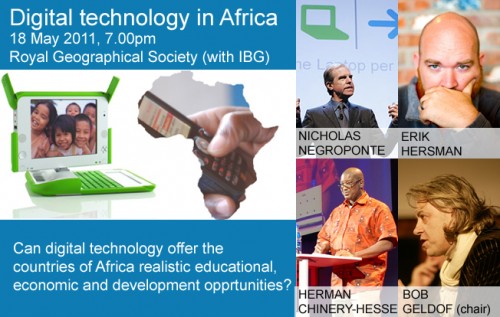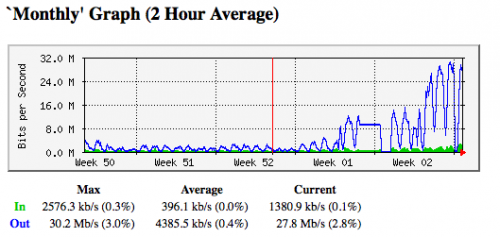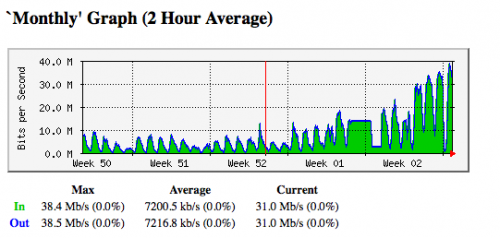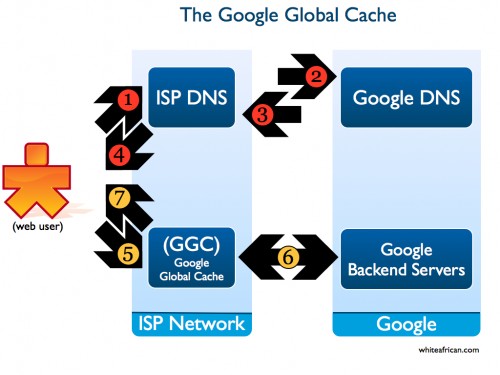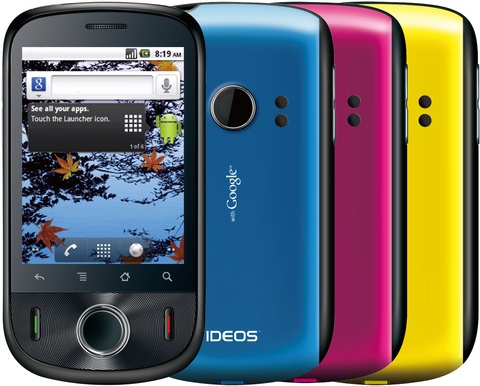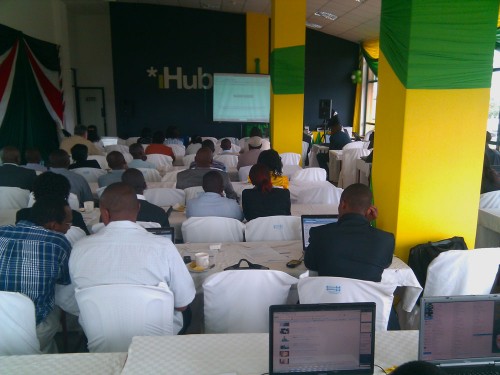This last month has kept me too off-kilter to get a good blog post up. However, there have been some very interesting happenings around the continent, here are the ones that caught my attention:
Pivot East
East Africa’s mobile startup pitching competition is just a month away. We announced the top 50 a few weeks ago, and now the 25 Finalists are named as well. Don’t miss this event, June 5 & 6th at the Ole Sereni hotel in Nairobi.
Google Releases “Insights Africa”
This truly deserves a blog post of its own… Google spent a lot of money and time gathering information from over 13,000 people across 6 African countries (Ghana, Kenya, Nigeria, Senegal, South Africa and Uganda) to determine why, and how, people use the internet. This data is all openly available, with an outstanding visualization tool to see what the information really means, and compare it, at InsightsAfrica.com. My chart below is just one example, showing how people access the internet across these 6 countries:
Donors prioritized “industrial policy†in Asia, but “social sectors†in Africa. Why?
Kariobangi writes a compelling blog post on the difference between the aid that was prioritized for Asia versus that for Africa.
TeleRivet: An Android SMS gateway
Similar what Ushahidi offers at SMSsync, TeleRivet is a tool that allows you to use your Android phone as an SMS gateway. It’s more robust, offers an API, and makes it easy for people to get started on SMS and USSD apps. Mbwana Alliy writes up a blog post on why this is important, and the business prospects involved in utilizing this type of service.
WEF: The Global Information Technology Report 2012
The World Economic Forum’s annual report on IT has some good information on emerging markets. You can read it online here. Here’s the video:
ForgetMeNot and the rise of Africa’s Smart(er) Phones
BizCommunity has a good article on ForgetMeNot’s Message Optimizer service’s growth on the continent. This service delivers internet content to users who can only access that information via SMS. Here’s how it works:
“First, a mobile phone subscriber sends an SMS to a given short code. The message is received in the mobile company’s message centre, which then forwards to ForgetMeNot Africa’s internet servers. The servers process, route and deliver the message to the subscriber, who can then respond.”
Kenya study, impact of venture capital on small and medium sized enterprise
VC4Africa reviews a report on VC’s in Kenya. This isn’t just tech, but it is interesting and surfaces some great information. [PDF Download]
“The minimum profit before use of venture capital was Ksh 34, 866. Upon use of venture capital, the minimum profit increased to Ksh 600, 000. This shows an increase in minimum profit of 94%. The maximum profit respondents reported before use of venture capital was Ksh 38, 567,951 which increased to Ksh 62, 864,152 an increase of 63%. The average profit also increased by 69% (from Ksh 7,204,653 to Ksh 12, 202,775)”
Mpesa, a 5 Year Infographic
Just how big has Mpesa become? Take a look [PDF version].
Jason Njoku, Funding and Nigerian Movies Online
In Nigeria, Jason Njoku is at it again, raising $8m from Tiger Global Management, a US-based PE and hedge fund. Here’s an interview with him on Forbes. Iroko Partners is the world’s largest digital distributor of Nigerian movies and African music. The firm is YouTube’s biggest partner in Africa, boasting over 152 million views in 2011.
